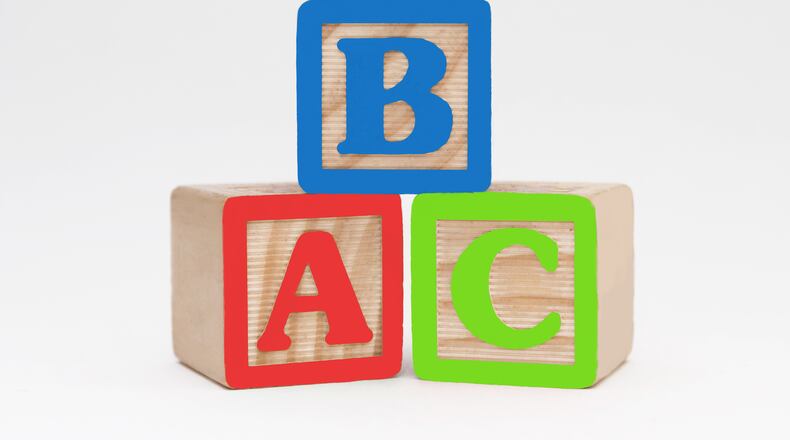But there’s something about the knowing and serious purpose with which the 2-year-old grandson points his finger and says “more much” that has me wishing the “L” will forever remain silent when he says “mulch.”
It’s just indelibly cute.
This all began when the chance to teach him a new word presented itself late morning on a summer’s day.
MORE FROM STAFFORD: Springfield women honored for community commitment
Grandma and I had been called out of the bullpen to do a few innings of child care relief to cover for vacation.
My wife, the brains of the operation, wisely got us on the schedule for two rounds of Mondays and Fridays. I hadn’t realized what a deft move it had been until the Saturdays and Sundays during which we were tuck snugly in a home absent of the sounds of children and with the blessed freedom to snore at will.
Anyhow, when we reported for duty a week ago Monday at the kids’ house, we discovered that the June monsoons had left an ankle-high jungle of weeds at the bottom of the steps from their deck into the back yard.
The truth is I seldom volunteer to do work at their home that I hate to do at my own. But the grandkids romp around that weedy patch and, hey, there might have been poison ivy there.
With the ground still damp, the weeds pulled up easily. And a trip to Lowes for what I was then calling mulch allowed the 2-year-old and I to enjoy a boys’ day out, driving through a rare sunny day with the windows down.
The mulch we returned with was enough to cover the space between the stairs and the lower deck that holds the grill and the plastic kiddie pool - a pool malformed and that was evidence that Bigfoot had been in the back yard shortly after someone stole his beef jerky.
MORE STAFFORD: Springfield North grad's film to air on PBS
To discourage the return of weeds we’d pulled, my wife slid the open jaws of a scissors along the creases on a couple of black plastic trash bags and spread them on the ground before we covered them with mulch. Good thinking once again.
And soon, the mulch was gone.
I’d like to be able say I recognized a return trip to Lowes as a teachable moment for the little guy. But that would be only half true. I’d also like to say I knowingly and wisely tapped into a learning pipeline for toddlers; but that would be a misstatement worthy of a president.
It occurred to me later what had really happened.
At two years of age, he has reaped benefits from the variety of words he had spoken after the word “more” - words like yogurt, cereal, apple, milk, crackers and cookies.
To him, the word “mulch” may have seemed like the name of yet another gullet-bound substance - the fast track for yet another crumb for a seasoned crumb-snatcher to snatch.
So it was mostly by accident that when I sat his bottom down on the checkout table in the garden center and asked him to tell the cashier we needed “more mulch,” he brought his A game. Without a thought, he dropped the “L,” and said “more much” in a way that charmed the socks off the plastic statuary marked for clearance.
About 9 o’clock the next morning, after he’d stayed the night at our house for the first time, the two of us were at the accessible playground in Snyder Park when a notion struck me.
MORE FROM STAFFORD: Springfield man is 'the dad everyone should have', son says
Books, childhood rhymes and songs are like monkey bars for the mind - structures that appeal to children and make them want to clamber through the language, putting a leg up here and finding a hand hold there as they make their way.
As we were leaving the playground, one more element of all this was made clear to me at the splash pad I’d forgotten sits next to the playground.
Shortly after a mature, mustachioed man checked the water quality, the water in the pipes started to flow and the party was on.
To the boy who said “more much” the day before, it was as if one of the seven wonders of the world had just come to life in front of his very eyes.
He and a friendly 5-year-old girl in a My Little Pony swimsuit soon raised a chorus of squeals that sprung repeatedly from the sweet spot that resides between joy and fear that shone in their eyes when the water surprised them.
Then it struck me that the freshness of experience children have taps into the heady power of joy we see bubbling up in them as we sit at the edge of a splash pad or on bench beside; that playgrounds, splash pads and summer reading programs at libraries allow that joy to be leveraged in a way that encourages kids to learn the things they learn; and that even little things like teaching them to say “more much” somehow leads to much more.
About the Author
